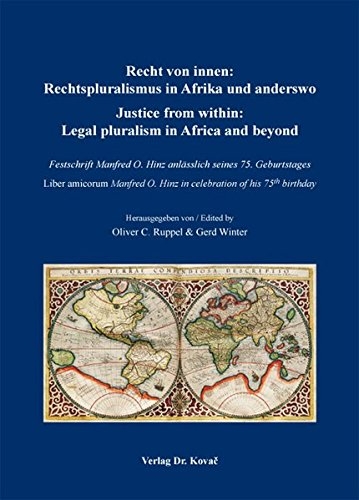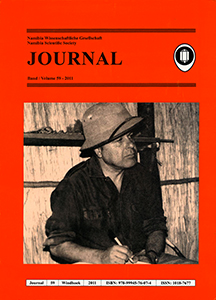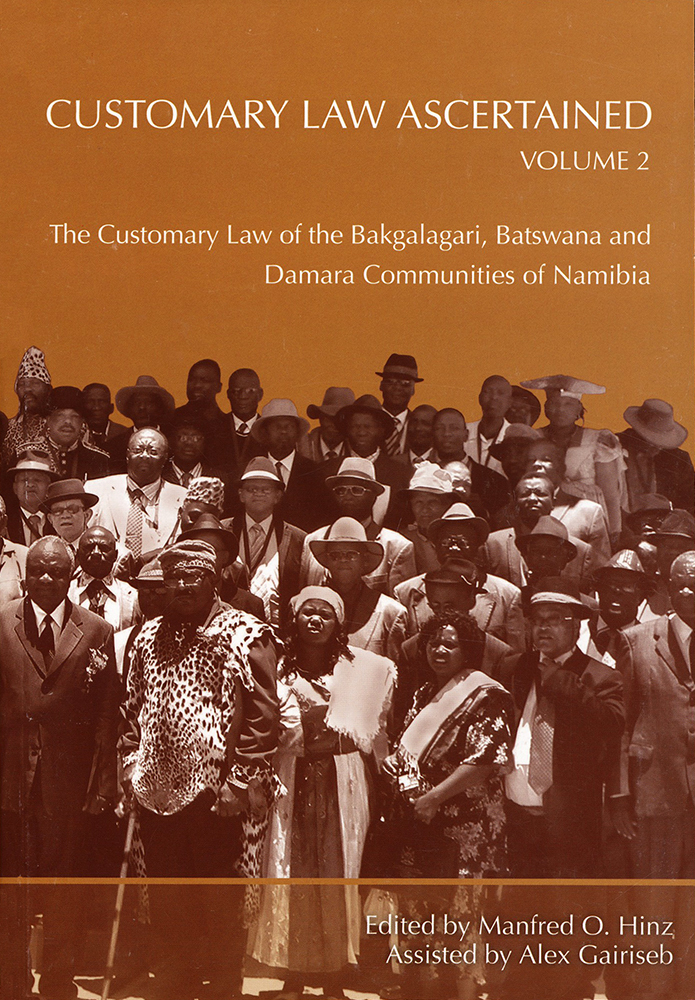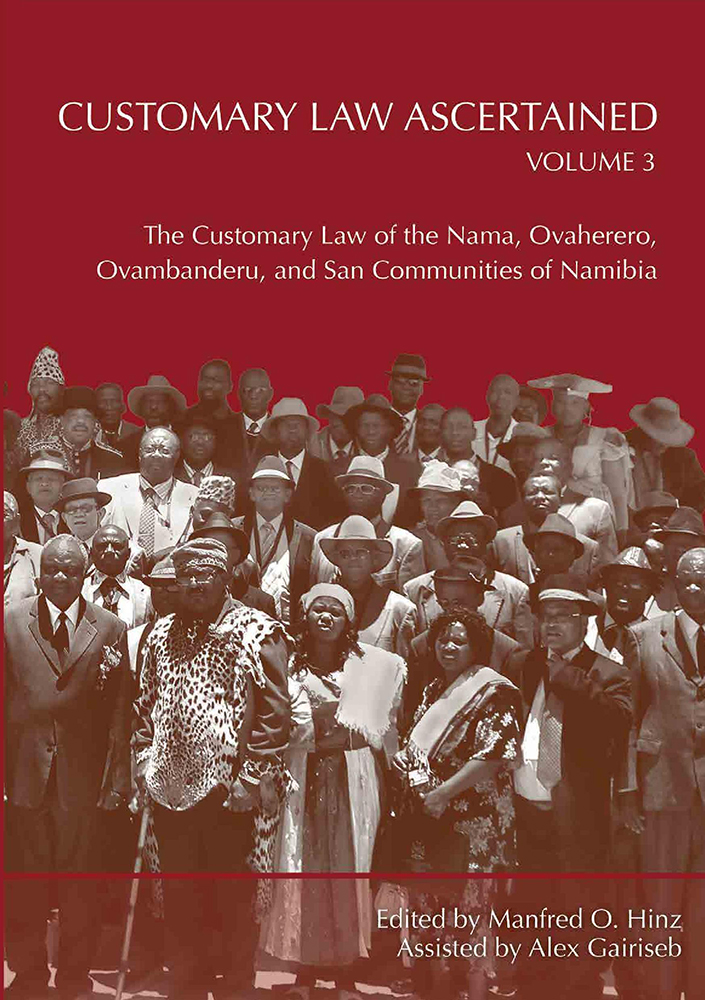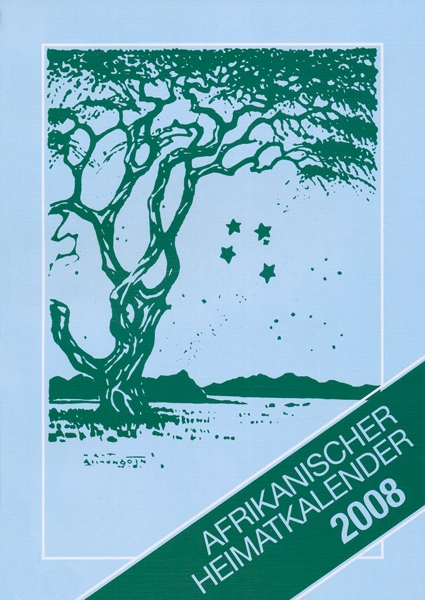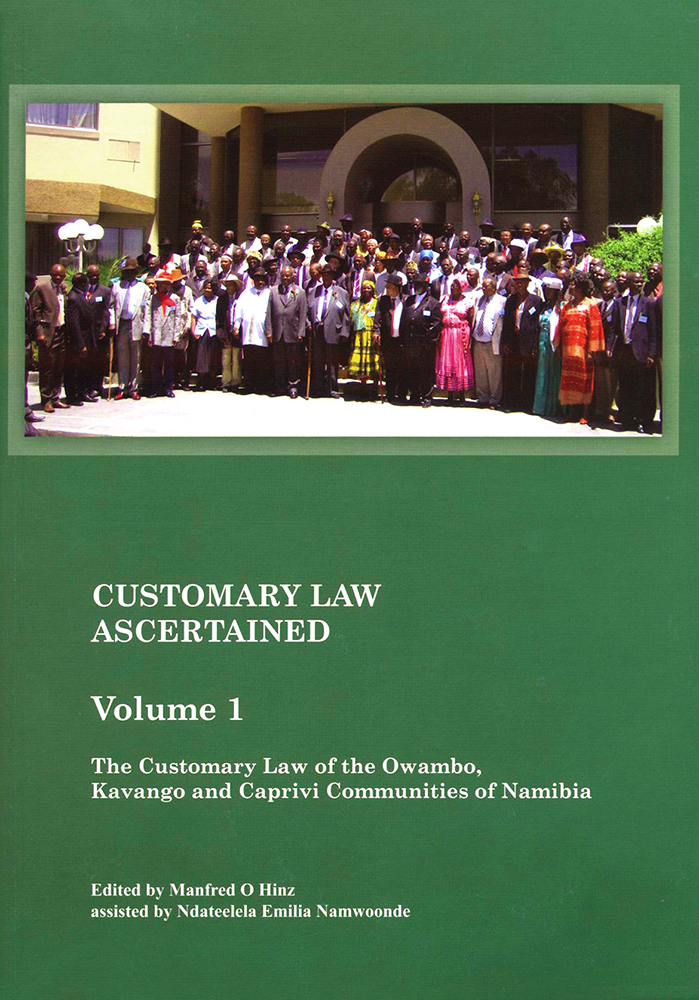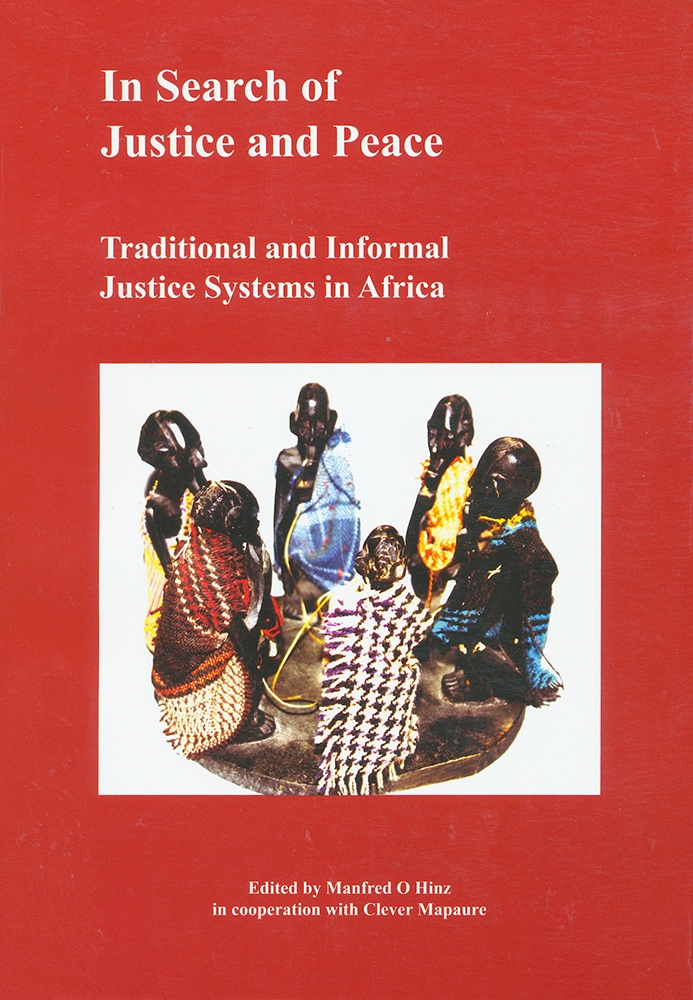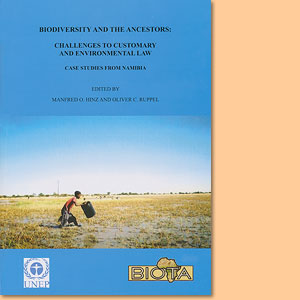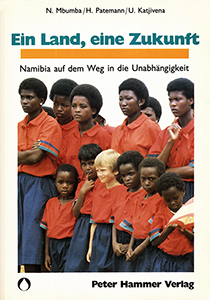Knowledge lives in the lake. Case studies in environmental and customary law from southern Africa, by Manfred O. Hinz et al.
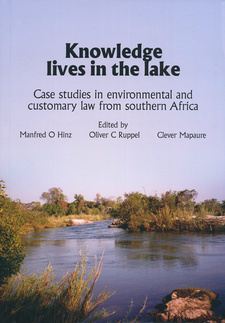
Knowledge lives in the lake. Case studies in environmental and customary law from southern Africa, by Manfred O. Hinz et al. ISBN 9789991685588 / ISBN 978-99916-855-8-8 Namibia / ISBN 9783941602755 / ISBN 978-3-941602-75-5 Germany
This volume of case studies on environmental and customary law in southern Africa, Knowledge lives in the lake: Case studies in environmental and customary law from southern Africa, is a continuation of Biodiversity and the ancestors, a book that was published in 2008.
Oliver C. Ruppel Manfred O. Hinz Prisca N. Anyolo Clever Mapaure Emilia N. Namwoonde Amanda T. Takaendesa
Like its predecessor, with the exception of one contribution this publication presents research conducted by students of the Faculty of Law of the University of Namibia (UNAM) within the framework of the international Biodiversity Monitoring Transect Analysis in Africa (BIOTA Africa) Project. The objective of the BIOTA Project was to generate knowledge relevant to decision-makers for the sustainable management of biodiversity. The Project was inspired by the movement to translate the demand for sustainable development into international and national policies, which gained worldwide recognition at the Rio de Janeiro Earth Summit in 1992. The Project was funded by the German Ministry for Education and Research for some ten years, and ended in 2010/2011. It was, however, fortunate that some of the questions dealt with in the BIOTA Project could be taken into a new project, which, to some extent, succeeded it, namely The Future of the Okavango (TFO) Project. The TFO Project, funded by the same Ministry in Germany, focuses on the sustainability of the Kavango River Basin. Thus, some contributions in this volume mark the interface between the two Projects by opening the research gates leading to the interests of the TFO Project. Through the BIOTA Project, African and German scientists of all relevant disciplines had the opportunity to research a broad variety of issues relating to biodiversity in Africa. Social scientists played an increasing role as the BIOTA Project proceeded in line with the growing interest to relate natural scientists' findings to the sociopolitical mechanisms that govern the operation of societies. The papers by UNAM law students assembled in this publication are the revised versions of work originally produced in accordance with UNAM requirements to complete the law degrees of LLB and LLM. The BIOTA Project budget allowed the students' fieldwork to be funded. Three of the students had the opportunity of reading their LLM degrees within the framework of the Project. In these cases, the Project provided them with scholarships to work on their theses full-time. The introductory paper by Manfred O. Hinz is an attempt to deal with the conflicts between customary law and state law, which had already become apparent in the contributions to Biodiversity and the ancestors. Some of the suggestions in the concluding chapter of that volume, entitled "Findings and the way forward", are pursued further in observations which draw from the discourse on the law of sustainable development, in that analyses of what is being offered to describe the architecture of global environmental governance have been used to support the need for remedies to the said conflicts. The following two papers, both by Prisca Nangoma Anyolo, deal with a topic also previously addressed in Biodiversity and the ancestors, namely communal conservancies in Namibia. These conservancies enjoy great support in the country and have been established in basically all parts of it. Anyolo's first paper offers background information on conservancies in Namibia, while the second describes the practicalities of a specific conservancy, i.e. the Uukwaluudhi Conservancy in north-central Namibia. Amanda Tapiwa Takaendesa was not part of the original BIOTA group. Supervised by one of the editors of this book, she wrote a paper that was added to the BIOTA collection since its focus on the extinction of black rhino in Zimbabwe covers an important aspect of nature conservation in southern Africa. In fact, Zimbabwe's approach to conservation substantially influenced the conceptualisation of conservancies in Namibia. The next contribution to the volume is one of two papers by Ndateelela Emilia Namwoonde. The first paper deals with the rejected registration of customary land rights in the Kavango Region. The topic adds to the ongoing debate on the status of communal land in the interface between state law, the Communal Land Reform Act and customary law. The message of the paper in its conclusion is that the registration of land as stipulated in accordance with the said Act is an unhealthy import of a legal concept and, thus, not workable under a widely accepted traditional system of administering land. [...]
This is an excerpt from the book: Knowledge lives in the lake. Case studies in environmental and customary law from southern Africa, by Manfred O. Hinz et al.
Book title: Knowledge lives in the lake
Subtitle: Case studies in environmental and customary law from southern Africa
Editors: Manfred O. Hinz; Oliver C. Ruppel; Clever Mapaure
Authors: Prisca N. Anyolo; Manfred O. Hinz; Clever Mapaure; Emilia N. Namwoonde; Oliver C. Ruppel; Amanda T. Takaendesa; Sanita van Wyk; Angelique L. Zender
Cover photograph: Helgard Patemann-Hinz
Publisher: Namibia Scientific Society
Windhoek, Namibia 2013
ISBN 9789991685588 / ISBN 978-99916-855-8-8 Namibia
ISBN 9783941602755 / ISBN 978-3-941602-75-5 Germany
Softcover, 17x24 cm, 274 pages
Hinz, Manfred O. und Ruppel, Oliver C. und Anyolo, Prisca N. und Mapaure, Clever und Namwoonde, Emilia N. und Takaendesa, Amanda T. und van Wyk, Sanita und Zender, Angelique L. im Namibiana-Buchangebot
Knowledge lives in the lake. Case studies in environmental and customary law from southern Africa
Knowledge lives in the lake: Case studies in environmental and customary law from southern Africa presents research within the framework of the international Biodiversity Monitoring Transect Analysis in Africa (BIOTA) Project.
The Law of Pre-Trial Criminal Procedure in Namibia
The Law of Pre-Trial Criminal Procedure in Namibia explains the rights of individuals, the duties of law enforcement officers, and the procedures of the courts in criminal cases in Namibia.
Recht von innen: Rechtspluralismus in Afrika und anderswo
Recht von innen, Rechtspluralismus in Afrika und anderswo ist eine Festschrift zu Ehren von Prof. Dr. Manfred O. Hinz anläßlich seines 75. Geburtstages.
Journal 59-2011 (Namibia Wissenschaftliche Gesellschaft)
Dies ist die 59. Ausgabe des Journals der Namibia Wissenschaftlichen Gesellschaft von 2011.
Customary Law Ascertained (Vol 2): The Customary Law of the Bakgalagari, Batswana and Damara Communities of Namibia
Customary Law Ascertained (Vol 2) is the second of a three volume series in which traditional authorities in Namibia present the customary laws of the Bakgalagari, Batswana and Damara communities.
Customary Law Ascertained (Vol 3): The Customary Law of the Nama, Ovaherero, Ovambanderu, and San Communities of Namibia
Customary Law Ascertained Volume 3 presents the customary laws the Nama, Ovaherero, Ovambanderu, and San communities of Namibia.
Afrikanischer Heimatkalender 2008
Afrikanischer Heimatkalender 2008: Seit 1930 Botschafter christlicher Werte in Namibia, mit vielen interessanten landeskundlichen, geschichtlichen, politischen und kulturellen Beiträgen.
Women and custom in Namibia
Is so called cultural practice surpressing gender equality in Namibia? The study Women and custom in Namibia seeks for answers and perspectives.
The customary law of the Owambo, Kavango and Caprivi Communities of Namibia
The customary laws of the Owambo, Kavango and Caprivi communities of Namibia were neglected during the past.
In search of Justice and Peace. Traditional and Informal Justice in Africa
In search of Justice and Peace introduces traditional and informal justice in various parts of Africa to secure justice and peace at the local level.
Biodiversity and the Ancestors. Challenges to Customary and environmental law case studies from Namibia
Spans an arc between legislative efforts on regional, national and local levels and traditional ways of maintaining the environment in Namibia
Ein Land, eine Zukunft. Namibia auf dem Weg in die Unabhängigkeit
'Ein Land, eine Zukunft. Namibia auf dem Weg in die Unabhängigkeit' will mit zahlreichen Beiträgen über Ideologie und Praxis des Kolonialsystems in Namibia sowie über politische und gesellschaftliche Utopien und Alternativen informieren.



